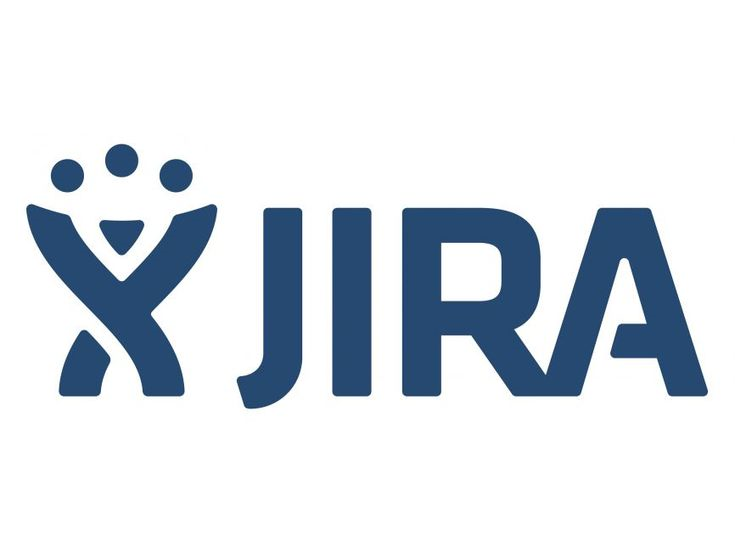Being technically prepared for a software development project entails possessing the requisite knowledge, skills, and experience to effectively undertake and contribute to the project’s objectives. It starts with a comprehensive understanding of the project’s requirements, scope, and desired outcomes. A technically prepared developer is well-versed in the relevant programming languages, frameworks, and tools necessary for the project. They are capable of making informed decisions regarding the design and architecture of the software, ensuring scalability, maintainability, and efficiency. Moreover, being technically prepared involves staying updated with the latest industry trends and best practices, enabling developers to leverage cutting-edge technologies and methodologies. Collaboration and effective communication with team members are equally crucial, as a technically prepared developer can seamlessly integrate their work with that of others, fostering a cohesive development process. In a nutshell, technical preparedness in software development empowers individuals to deliver high-quality solutions that meet project requirements within set timelines, contributing significantly to the project’s success.
To ensure you are technically prepared for a project, here are some steps you can follow:
- Understand the Project Requirements: Read and analyze the project documentation carefully to gain a clear understanding of what needs to be accomplished. Identify the project goals, objectives, scope, and any specific technical requirements.
- Assess Your Skills and Knowledge: Evaluate your existing technical skills and knowledge related to the project requirements. Identify any gaps or areas where you need to acquire more expertise.
- Conduct Research: If there are unfamiliar technologies, tools, or concepts involved in the project, conduct thorough research to familiarize yourself with them. Read technical documentation, articles, tutorials, and watch videos related to the project domain.
- Develop a Learning Plan: Create a plan to bridge any knowledge gaps or acquire new skills. Determine which resources, courses, or training materials you need to study. Set specific goals and deadlines to ensure you stay on track.
- Gain Hands-on Experience: Whenever possible, practice and experiment with the technologies or tools you’ll be using in the project. Set up a development environment, work on small projects, or participate in relevant open-source projects to gain practical experience.
- Collaborate and Seek Guidance: Engage with colleagues or subject matter experts who have experience in the project domain. Seek their guidance, ask questions, and learn from their expertise. Collaborate with team members to share knowledge and best practices.
- Stay Updated: Keep yourself updated with the latest trends, advancements, and updates in the relevant technologies. Subscribe to industry newsletters, follow relevant blogs, join online communities or forums, and attend conferences or webinars.
- Test and Validate: If applicable, create test cases and perform testing to ensure that your technical solutions meet the project requirements. Validate your work against the specified criteria and make necessary adjustments if needed.
- Document Your Work: Document the technical aspects of your project, including any design decisions, implementation details, or configurations. This documentation will not only help you in the future but also benefit your team members and stakeholders.
- Seek Feedback: Seek feedback from project stakeholders, team members, or mentors during the development process. Incorporate their suggestions and make necessary improvements to your work.
Note that technical preparedness is an ongoing process. As you progress through the project, continue to learn, adapt, and refine your technical skills to meet the evolving requirements.
CONTENTS
How to prepare for technical challenges and its mitigation
Contributions to the successful completion of the project
Sample draft of technical preparedness checks
The need – Why
You might be wondering why on earth is this even important. Trust me it is! Being technically prepared for a project is important for several reasons:
- Meeting Project Requirements: Technical preparedness ensures that you have the necessary skills and knowledge to meet the project’s technical requirements. This includes understanding the programming languages, frameworks, and tools required for the project and being able to apply them effectively.
- Efficient Problem Solving: A technically prepared developer is better equipped to handle challenges and solve technical problems that arise during the project. They have a solid foundation of technical skills and experience, allowing them to troubleshoot issues more efficiently and find optimal solutions.
- Quality Deliverables: Technical preparedness enables you to deliver high-quality work. You understand the best practices, coding standards, and architectural principles necessary to develop robust and reliable software. This results in a product that meets or exceeds the expected quality standards.
- Effective Collaboration: When you are technically prepared, you can effectively collaborate with other team members. You can understand their work, integrate your contributions seamlessly, and communicate technical concepts clearly. This fosters better teamwork, reduces misunderstandings, and enhances overall project efficiency.
- Time and Resource Management: Technical preparedness allows you to make informed decisions about project timelines and resource allocation. You can accurately estimate the effort required for different tasks, identify potential bottlenecks or dependencies, and plan accordingly. This helps in managing project schedules and ensuring timely delivery.
- Scalability and Maintainability: A technically prepared developer considers the scalability and maintainability aspects of the software during the development process. They design the software architecture in a way that allows for future growth and easy maintenance. This minimizes technical debt and reduces the likelihood of major rework in the future.
- Continuous Learning and Adaptability: Technical preparedness involves staying updated with the latest industry trends, technologies, and practices. This fosters a mindset of continuous learning and adaptability, allowing you to embrace new tools and approaches that may be beneficial to the project. It helps you stay ahead of technological advancements and deliver innovative solutions.
So being technically prepared ensures that you can effectively contribute to the project, deliver high-quality work, collaborate efficiently, and overcome technical challenges. It ultimately leads to the successful completion of the project, meeting or exceeding the expectations of stakeholders.
How to prepare for technical challenges and its mitigation
Several factors contribute to the successful implementation of technical preparedness. To prepare for technical readiness in a software development project, you can follow these steps:
- Understand the Project Requirements: Carefully review the project documentation to gain a clear understanding of the requirements, scope, and objectives. Identify the specific technical skills and knowledge needed for the project.
- Assess Your Current Skills and Knowledge: Evaluate your existing technical skills and knowledge related to the project requirements. Identify any gaps or areas where you need to enhance your expertise.
- Identify Learning Resources: Determine the resources you need to acquire the necessary skills and knowledge. This may include online tutorials, courses, books, documentation, videos, or other learning materials.
- Create a Learning Plan: Develop a plan to systematically acquire the required technical skills. Set specific goals and deadlines for each skill or topic you need to learn. Break down complex subjects into manageable chunks to facilitate learning.
- Engage in Hands-on Practice: Practice is essential to reinforce your learning and gain practical experience. Set up a development environment and work on sample projects or exercises that align with the project requirements. Experiment with different technologies, tools, and frameworks to deepen your understanding.
- Collaborate and Seek Guidance: Engage with experienced developers or mentors who can provide guidance and support. Join developer communities, attend meetups or conferences, and participate in online forums to connect with peers and seek advice.
- Stay Updated with Industry Trends: Follow industry blogs, forums, and newsletters to stay abreast of the latest trends, updates, and best practices in software development. This will help you remain relevant and ensure your skills align with the current industry standards.
- Seek Feedback and Review: Seek feedback on your code and solutions from experienced developers. Review and analyze their feedback to identify areas for improvement and refine your technical skills.
- Build a Portfolio: Document your learning journey and showcase your technical skills by building a portfolio. Include sample projects or code snippets that demonstrate your abilities. A portfolio can be valuable when applying for new projects or job opportunities.
- Continuously Learn and Adapt: Technical readiness is an ongoing process, so commit to continuous learning and improvement. Stay curious, explore new technologies, and be open to updating your skills as the project progresses.
Its noteworthy that, technical preparedness requires dedication, practice, and a commitment to lifelong learning. By following these steps and maintaining an active and adaptable mindset, you can effectively prepare yourself for software development projects and increase your chances of success.
Contributions to the successful completion of the project
Engaging in technical preparedness for a software development project can contribute to various factors that positively impact the project’s outcomes. Some of these factors include:
- Project Success: Technical preparedness increases the likelihood of project success. By possessing the necessary skills and knowledge, you are better equipped to deliver a high-quality solution that meets the project requirements and satisfies the stakeholders’ expectations.
- Efficiency and Productivity: Being technically prepared allows you to work more efficiently and productively. You can quickly understand and address technical challenges, leading to smoother development processes, reduced debugging time, and optimized workflows. This translates to faster project completion and improved overall productivity.
- Quality Assurance: Technical preparedness enables you to develop software with a strong focus on quality. By adhering to best practices, employing robust coding standards, and implementing proper testing and validation processes, you can ensure the software’s reliability, security, and stability.
- Risk Mitigation: Being technically prepared helps identify and mitigate potential risks early in the project. Your expertise allows you to anticipate technical hurdles, plan contingency measures, and implement effective risk mitigation strategies. This minimizes the chances of project delays, cost overruns, or critical failures.
- Innovation and Scalability: Technical preparedness fosters innovation by keeping you up-to-date with the latest technologies, trends, and industry practices. This knowledge allows you to incorporate innovative ideas and solutions into the project, driving its competitiveness and future scalability.
- Collaboration and Communication: Technical preparedness enhances collaboration and communication within the project team. When team members possess the required technical skills, they can effectively understand and contribute to each other’s work, share knowledge, and communicate ideas and challenges clearly. This strengthens teamwork, reduces misunderstandings, and promotes a more cohesive work environment.
- Client Satisfaction: Technical preparedness contributes to overall client satisfaction. By delivering high-quality, technically sound solutions within the project’s timelines, you build trust and confidence with the client. This can lead to positive client feedback, repeat business, and potential referrals, which are valuable for professional growth.
It has been observed that technical preparedness positively impacts project success, efficiency, quality assurance, risk management, innovation, collaboration, and client satisfaction. It creates a solid foundation for effective software development and sets the stage for achieving project goals and delivering exceptional results.
Sample draft of technical preparedness checks
Here’s a rough draft example of technical preparedness checks for a software development project:
1. Programming Language Proficiency:
– Are you proficient in the programming language(s) required for the project?
– Can you demonstrate your understanding of the language’s syntax, concepts, and best practices?
– Have you worked on similar projects or exercises using the programming language?
2. Framework and Tool Familiarity:
– Are you familiar with the frameworks and tools specified for the project?
– Have you used them in previous projects or personal projects?
– Are you aware of the key features, capabilities, and limitations of the frameworks and tools?
3. Database Knowledge:
– Do you have knowledge of the relevant databases and database management systems?
– Are you familiar with writing efficient queries and managing database connections?
– Have you worked with similar database structures or technologies?
4. Version Control:
– Are you experienced in using version control systems such as Git?
– Do you understand branching, merging, and resolving conflicts?
– Can you demonstrate your ability to effectively collaborate with team members using version control?
5. Testing and Debugging:
– Are you familiar with testing frameworks and methodologies?
– Can you write unit tests and perform integration testing?
– Do you have experience in debugging and troubleshooting code issues?
6. Security Awareness:
– Are you knowledgeable about common security vulnerabilities and best practices?
– Can you implement secure coding practices to mitigate potential risks?
– Have you worked on projects with specific security requirements or compliance standards?
7. Performance Optimization:
– Are you aware of performance optimization techniques for the chosen technologies?
– Can you identify potential performance bottlenecks in code or database queries?
– Have you optimized code or database queries in previous projects?
8. Documentation and Communication:
– Are you proficient in writing clear and concise technical documentation?
– Can you effectively communicate technical concepts to non-technical stakeholders?
– Have you collaborated with team members through clear and regular communication channels?
9. Continuous Learning:
– Do you actively seek opportunities to learn and stay updated with industry trends?
– Have you completed relevant courses, certifications, or attended workshops?
– Are you involved in developer communities or forums to share knowledge and gain insights?
10. Problem-Solving Skills:
– Can you demonstrate your ability to analyze and solve complex technical problems?
– Have you worked on challenging projects that required innovative solutions?
– Are you able to approach problems with a logical and systematic mindset?
Now, these are just rough draft examples, and you can tailor them to suit the specific needs and requirements of your software development project.
For now we will stop here and focus more on getting ourselves focused and more prepared for other project aspects. Until or next article – Cheers!






There is noticeably a bundle to know about this. I assume you made certain nice points in features also.